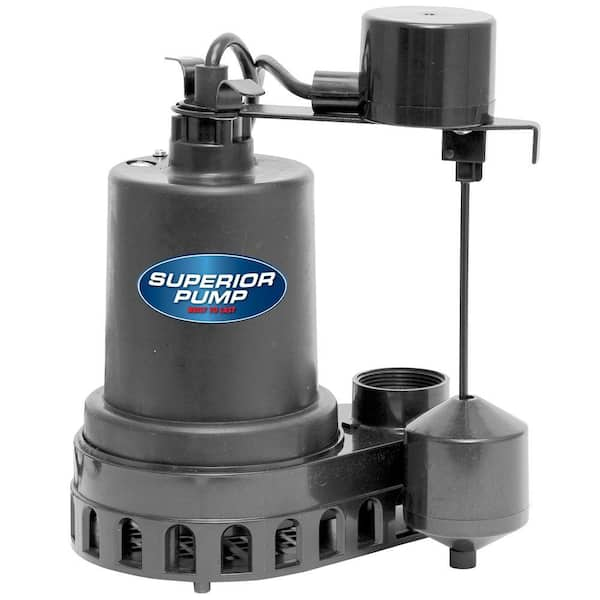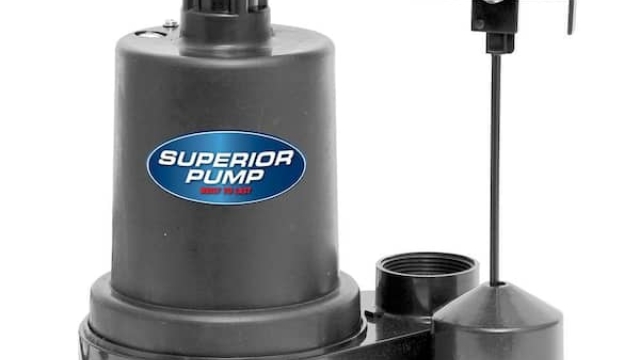
Diving in Deep: Exploring the Power of Submersible Pumps
When it comes to keeping things flowing smoothly, submersible pumps have proven to be a reliable and efficient solution. These remarkable devices are designed to operate underwater, handling various types of liquids and solids with ease. From draining floodwaters to pumping slurry, their versatility knows no bounds. In this article, we will delve into the fascinating world of submersible pumps and uncover the secrets behind their exceptional power and performance.
One online platform that has gained prominence in the field of submersible pumps is "slurrypumpdm," the dedicated platform of Taian OCEAN Pump Co., Ltd. As a professional manufacturer and exporter of heavy-duty submersible pumps, this company has built a solid reputation for producing top-quality pumping solutions. With their expertise, they have successfully harnessed the power of submersible pumps to tackle demanding applications across various industries.
So, join us as we take a deep dive into the world of pump submersible, uncovering the capabilities of these extraordinary devices and exploring the innovative solutions offered by industry leaders like Taian OCEAN Pump Co., Ltd. Let’s explore the power of submersible pumps together and discover how they continue to revolutionize fluid management in the most challenging environments.
Types of Submersible Pumps
Submersible pumps are widely used in various industries for their efficient and reliable performance. These pumps are designed to operate underwater, providing a convenient solution for pumping fluids, slurry, and various types of waste materials. In this section, we will discuss three common types of submersible pumps and their applications.
-
Utility Submersible Pumps: Utility submersible pumps are versatile pumps that can handle a wide range of fluids and debris. They are commonly used for draining flooded areas, such as basements, construction sites, and sewage systems. These pumps are known for their high efficiency and ability to handle solids, making them suitable for various dewatering and waste management tasks.
-
Sewage Submersible Pumps: Sewage submersible pumps are specifically designed to handle wastewater and sewage applications. With their robust construction and powerful motor, these pumps can effectively transport solid waste, sludge, and other types of liquid waste. They are commonly used in municipal wastewater treatment plants, industrial facilities, and commercial buildings for efficient wastewater management.
-
Slurry Submersible Pumps: Slurry submersible pumps are specially designed to handle abrasive and viscous materials. These pumps are commonly used in mining, dredging, and construction industries to pump out slurry, sand, and other heavy materials. They are equipped with a heavy-duty impeller and wear-resistant components to withstand the harsh conditions of slurry pumping.
Each type of submersible pump offers unique features and benefits, catering to specific industry needs. Whether it’s draining water from a flooded area or effectively managing wastewater, submersible pumps play a crucial role in diverse applications. In the next sections, we will delve deeper into the features and capabilities of each type of pump, further exploring the power of submersible pumps in various industrial sectors.
Advantages of Submersible Pumps
Submersible pumps offer numerous advantages for various applications. Their unique design and functionality make them highly efficient and reliable in a wide range of conditions.
One of the key advantages of submersible pumps is their ability to operate without priming. Unlike other types of pumps that require manual priming to remove air from the system, submersible pumps are already immersed in the fluid they are pumping. This eliminates the need for priming, saving time and effort during installation and maintenance.
Another advantage of submersible pumps is their compact size and easy deployment. Being designed to be submerged in the liquid being pumped, these pumps are typically smaller in size compared to surface pumps. This compact design allows for easy installation and ensures efficient operation, especially in areas with limited space.
Additionally, submersible pumps are known for their exceptional reliability and durability. By being fully submerged, these pumps are protected from external elements such as dust, debris, and harsh weather conditions. This not only prolongs their lifespan but also reduces the risk of damage and breakdown, resulting in less downtime and maintenance costs.
In summary, with their ability to operate without priming, compact size, and high reliability, submersible pumps are a preferred choice for various applications. From wastewater management to mining and construction, these pumps offer efficient and hassle-free operation, making them an indispensable tool in many industries.
Applications of Submersible Pumps
Submersible pumps are versatile and find application in various industries. Here are some key areas where these pumps are widely used:
-
Industrial Applications:
Discover
Submersible pumps play a crucial role in numerous industrial sectors. They are extensively used in wastewater treatment plants to efficiently handle and transport sewage and sludge. Their ability to operate underwater makes them ideal for applications that demand reliable and continuous pumping of liquids with high solid content, such as slurries and heavily contaminated water. Additionally, submersible pumps are also utilized in mining operations for dewatering underground mines, ensuring smooth and uninterrupted production. -
Construction Sector:
In the construction industry, submersible pumps aid in the efficient removal of water from construction sites, including trenches, basements, and foundation pits. These pumps facilitate effective dewatering, preventing water accumulation and enabling construction work to progress without any hindrances. Their robust design and capability to handle abrasive fluids make them suitable for challenging construction environments. -
Agricultural and Irrigation Use:
Submersible pumps have significant applications in agriculture and irrigation systems. They are employed to extract water from boreholes, wells, or reservoirs for irrigation purposes. These pumps provide a reliable and consistent supply of water, ensuring optimal growth for crops. Additionally, they are utilized for groundwater extraction in areas where surface water sources may be limited or inadequate.
In conclusion, submersible pumps offer a wide range of applications across industries, including wastewater treatment, mining, construction, agriculture, and irrigation. Their ability to operate underwater, handle high solid content, and efficiently transport fluids make them a valuable tool for various purposes.





